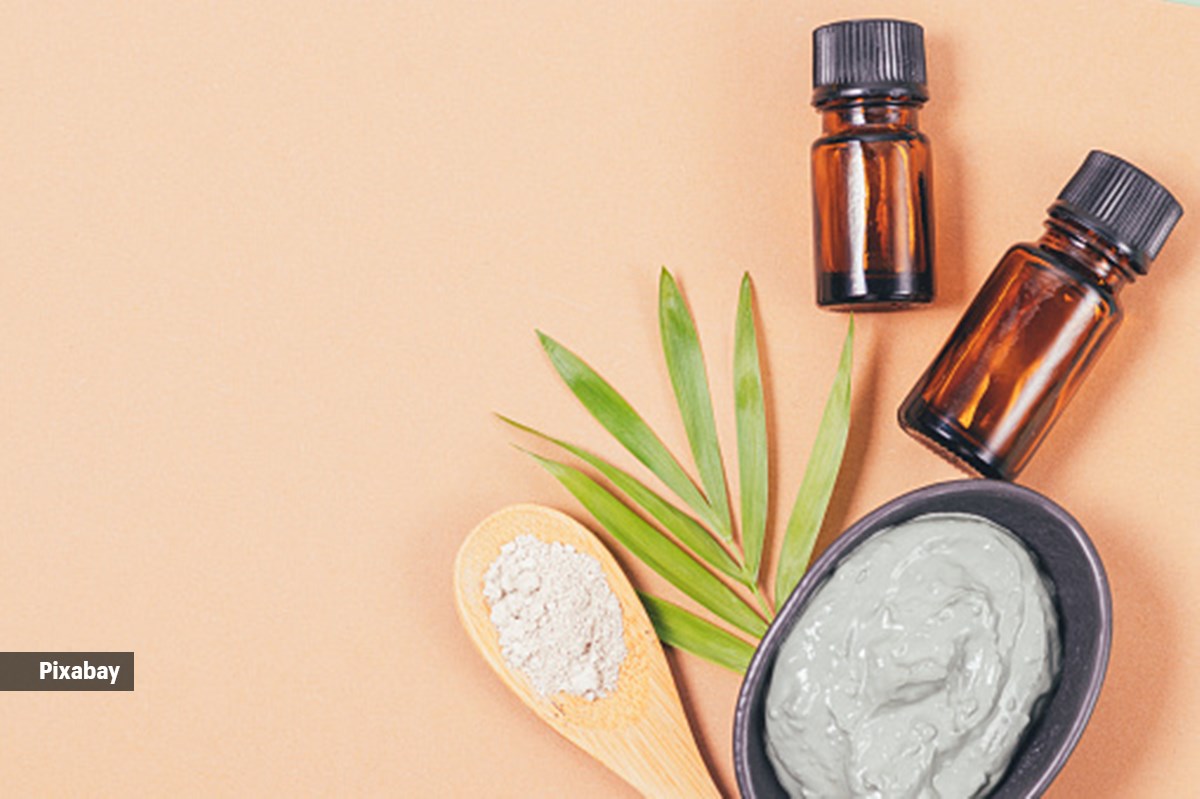📣 For more lifestyle news, click here to join our WhatsApp Channel and also follow us on Instagram
Derived from volcanic ash, this clay can treat rashes, acne, and also promote healthy hair
Don’t use dry clay on your skin and do not store it in metal containers
 Derived from volcanic ash, the clay gets its name from Fort Benton in Wyoming, where it occurs in large amounts. (Source: Pixabay)
Derived from volcanic ash, the clay gets its name from Fort Benton in Wyoming, where it occurs in large amounts. (Source: Pixabay)Bentonite clay is a natural clay with a fine, soft texture that is usually mixed with water and used as a paste for medical as well as cosmetic purposes, such as treating rashes, and acne, or as a hair mask. Derived from volcanic ash, the clay gets its name from Fort Benton in Wyoming, where it occurs in large amounts.
Talking about the same, Dr Rinky Kapoor, consultant dermatologist and dermato-surgeon, The Esthetic Clinics, Mumbai said, “Bentonite clay is a form of lush volcanic ash which has a high content combination of minerals such as calcium, magnesium, sodium, potassium and iron — the reason behind its restorative and preventive properties. It is found in abundance in areas where volcanic ash has been present.”
She added that another important property of bentonite that makes it excellent for use on the skin is its ability to expand when liquid is added to it.
Here are some benefits of bentonite clay, according to the expert:
Treating oily skin and acne
Bentonite clay has powerful absorbing properties that may be useful in treating acne breakouts and oily skin. The clay can help remove excess sebum from the skin’s surface and have a calming effect on inflamed breakouts.
Providing sun protection
According to a study published in the National Library of Medicine, sun lotions containing specific proportions of bentonite and zeolite minerals were capable of absorbing the highest level of UV light compared to commercially available sun lotions.
Helps reduce the appearance of scars
The use of bentonite clay is an effective home remedy to remove scar tissues, thereby helping in lightening of acne marks on the face. It can also help get rid of stretch marks easily.
 Before using bentonite clay, do a skin test for allergies. (Source: Pixabay)
Before using bentonite clay, do a skin test for allergies. (Source: Pixabay)
Promotes even skin tone
Applying bentonite clay can improve skin texture and tone by exfoliating your skin and eliminating dead skin cells. It can help give you a rejuvenated and revitalised appearance.
Prevents dry scalp
Bentonite clay can offer deep moisturisation to your scalp, thus preventing dry and damaged hair. It can also protect the hair from heat damage, treat frizziness and promote a healthy shine.
Potential risks and side effects
Since it is a natural ingredient it does not have any side effects, however, Dr Kapoor noted that one must be careful with overuse as it can dry the skin. “People who have active acne should not use bentonite clay to exfoliate. Use it on the skin for a patch test 24 hours before using on the face to see if you are allergic to the product. If you have sensitive skin, then ask your doctor before using any bentonite clay product.”
She continued, “Once the clay becomes lumpy you should just discard it and make a new batch of face mask. Don’t use dry clay on your skin and don’t store it in metal containers.”
How to use bentonite clay?
The expert recommended mixing the clay with water and applying it on the face, neck, and other body parts. Wash the clay when dry. After washing, make sure you apply a good toner and moisturiser on the skin. “You can also add other ingredients like jojoba oil, aloe vera gel, apple cider vinegar, tea tree oil and rose water to maximise its benefits,” she suggested.
“The other ways to use bentonite clay is in bath bombs for a relaxing and detoxifying bath, and for relaxing the foot in a foot bath,” she said.
📣 For more lifestyle news, follow us on Instagram | Twitter | Facebook and don’t miss out on the latest updates!
📣 For more lifestyle news, click here to join our WhatsApp Channel and also follow us on Instagram






- 01
- 02
- 03
- 04
- 05





















